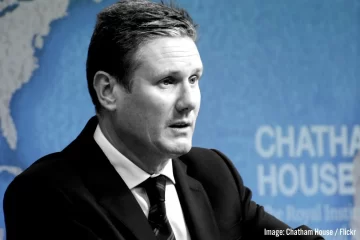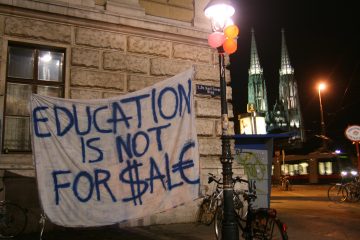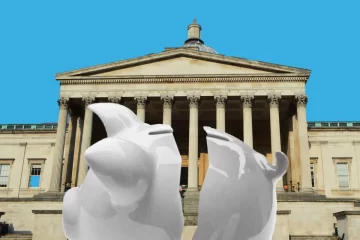A new parliamentary investigation into racist policing finds that the situation facing black communities is worse today than at the time of the Macpherson report, 22 years ago. To end police violence and racism, we must end capitalism.
Last month, the House of Commons Home Affairs Committee published a document entitled The Macpherson Report: Twenty-Two years on.
The aim of this parliamentary report was to examine the state of policing in Britain; and in particular, to assess what changes – if any – have been implemented in the wake of the death of Stephen Lawrence, and the subsequent inquiry into the police investigation of his murder.
The 1999 Macpherson report established that there was ‘institutional racism’ within the police force. Over two decades later, according to this recent Home Affairs Committee report, there has been little progress on this front. In fact, things have gone backwards.
Stop and search

The findings of this latest report on policing are a damning indictment on the entire institution. In many ways, the Committee concludes, racist policing is worse now than at the time of the Macpherson inquiry.
Stop and search practices, for example, also known as ‘sus laws’, have continued to be deployed in a racist manner, disproportionately targeting black people.
Stop and search laws were originally introduced in 1824 with the Vagrancy Act. The Act gave the police powers to stop, search, and even arrest anyone they suspected of committing a crime. The law was repealed in 1981, after a summer of riots in protest at racist policing. It was replaced with the Police and Criminal Evidence Act (PACE) in 1984.
What’s clear from this latest parliamentary report, however, is that the function and essence of the law has remained the same. Not only that, but the disproportionate use of these laws has increased.
Racism and riots
This report is published as we mark 10 years since the 2011 riots in London. The riots were sparked by the police murder of Mark Duggan – a young black man – on his estate in Tottenham. This killing had a profound impact and legacy for residents in the area.
The estate had been the location of another riot 25 years earlier, in 1985. This riot was caused after Cynthia Jarrett died of heart failure when four policemen burst into her home during a raid. They entered her house for a search after falsely arresting her son on suspicion of theft. He was subsequently acquitted of all charges.
Just a few years before that, more riots had taken place throughout the UK. In 1981, police brutality surrounding the death of Michael Bailey led to an uprising in Brixton, known as ‘the Brixton riots’.
A mere four years later, police shot Cherry Groce in front of her 11 year old son, in their home in Brixton. The shooting left Groce paralysed. But confusion led people to believe she had died – culminating in another riot.
These weren’t isolated phenomena, but spread far beyond Brixton. In July 1981 in Toxteth, Liverpool, just a few months after the events in Brixton, black youth protested alongside others from the local community against the city’s police.
In Handsworth, Birmingham, in July 1981, it was the same again. The Birmingham riots took place in the context of the police dismissing the threat of a National Front march that was planned to take place.
And again in Chapeltown, Leeds, also in July 1981. These events taught black workers and youth lessons on the role of the police that would not be easily forgotten.
Harassment and humiliation
From 1981, to 1985, to 2011, to today: the violent and repressive role that the police have played in these communities has remained the same.
Police brutality is the most extreme form of harassment and repression that members of these communities face. But it is the day-to-day experience of practices such as stop and search that pushes these communities to the edge.
It has been 40 years since the Brixton riots, and 22 years since the Macpherson report declared the police to be ‘institutionally racist’ – but nothing has changed.
Stop and search, for decades, has humiliated and targeted young black men. Now this parliamentary report shows that all the recommendations of the Macpherson inquiry have failed.
In fact, not only have they failed, but the report shows that since Macpherson, disproportionate use of stop and search has gotten worse.
Macpherson stated that, in 1997-98, “overall black people were five times more likely to be stopped than whites”.
The new report, meanwhile, finds that: “Over the year 2020 ‘black people were nine times (8.9) more likely than white people to be stopped and searched, under all powers, while the wider category of BAME people were over four times (4.1) more likely to be subject to the powers.’”
20 years of ‘unconscious bias’ training and targeted recruitment of black officers – yet none of this has made a difference. It demonstrates, irrefutably, that racism in the police is systemic, and cannot be reformed away or undone by inspecting the minds of individual officers.
Abolish the system

A racist police force does not drop from the sky, however, ready made with prejudice.
The police are a key pillar of the capitalist state, which exists to act as the guardians of the rich and their private property. And this wealth and property is based on the exploitation of a working class that is actively divided by the ruling class using racism and bigotry.
The racism, repression, and violence of the police is therefore a reflection of the racism, repression, and violence of the capitalist system that they serve to protect and defend – a system that inflicts poverty and hardship on the entire working class, and the black working class especially.
The result is that the most oppressed layers of the working class experience the full force of the state.
As long as the gulf between the rich and poor remains, so will the police and all their racism and violence. What is the source of gang-related crime, drug dealing, and theft if not poverty? And what is the source of that?
The blame for poverty, unemployment, and all these social crises lies firmly and squarely with the capitalist system and its representatives.
Only once this system is overthrown can the police be abolished, along with the racism, oppression, and violence that black and working-class communities suffer from under capitalism.
Fiona Lali




0 Comments